Quartz kitchen countertops have become a popular choice for homeowners and interior designers alike, thanks to their durability, aesthetic appeal, and low maintenance. Made from engineered stone, quartz countertops offer a wide range of design possibilities that can complement any kitchen style, from modern and minimalist to classic and rustic. Quartz is created by combining natural quartz crystals with resins and pigments, resulting in a highly durable and non-porous surface that resists stains, scratches, and heat. This makes quartz an excellent choice for busy kitchens where functionality and longevity are paramount.
One of the standout features of quartz countertops is their versatility in design. Quartz can mimic the appearance of natural stones like marble and granite, providing a luxurious look without the maintenance that natural stone typically requires. For instance, a quartz countertop with a marble look can add elegance and sophistication to a kitchen, offering the timeless beauty of marble with enhanced durability. Additionally, quartz is available in a plethora of colors and patterns, from solid colors to intricate designs that include sparkles and veining, allowing homeowners to customize their kitchens to their exact preferences.
Another advantage of quartz countertops is their consistency in color and pattern. Unlike natural stones, which can have significant variations and imperfections, quartz countertops are engineered to ensure uniformity. This is particularly beneficial for large kitchen islands or long countertop runs where a seamless appearance is desired. Moreover, because quartz is manufactured, it can be produced in large slabs, minimizing the need for seams and enhancing the overall aesthetic of the kitchen.
In terms of practicality, quartz countertops are highly resilient. Their non-porous surface means that they do not harbor bacteria or viruses, making them a hygienic option for food preparation areas. Spills can be easily wiped away without worrying about staining, and the countertops do not require sealing, unlike granite or marble. This low-maintenance quality makes quartz an attractive option for those who want a beautiful kitchen without the hassle of extensive upkeep.
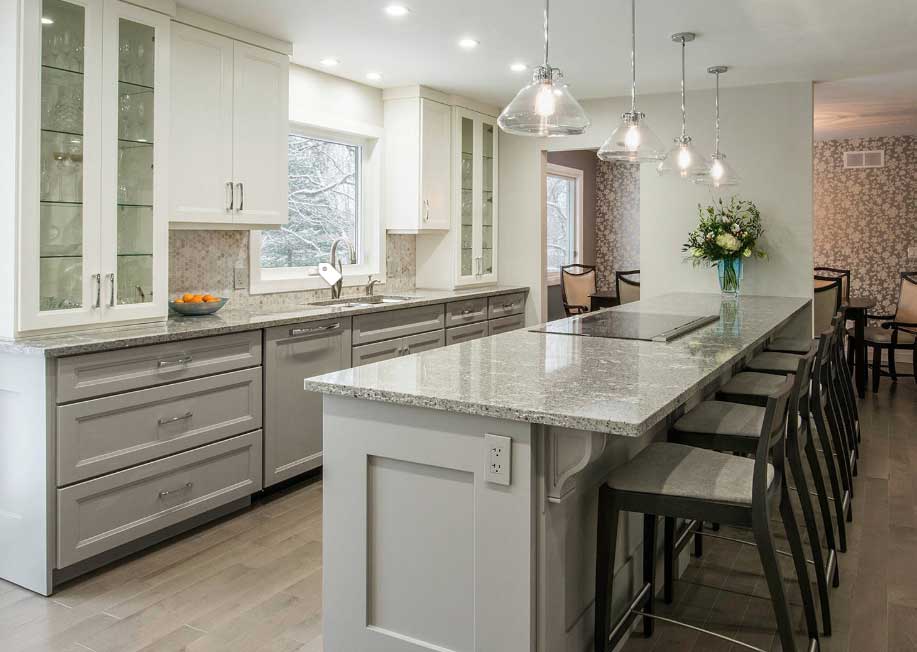
When it comes to installation, quartz countertops offer flexibility. They can be fabricated into various shapes and sizes, including complex edge profiles that add a custom touch to the kitchen design. Edge profiles such as ogee, bullnose, and beveled can enhance the overall look of the countertop, providing both functionality and aesthetic appeal. Additionally, quartz can be used for other kitchen surfaces such as backsplashes and waterfall islands, creating a cohesive and polished look.
One trend in quartz kitchen countertops is the use of bold, dramatic patterns. Large veining and striking color contrasts can make a statement in the kitchen, serving as a focal point and adding visual interest. This trend is particularly popular in contemporary and modern kitchen designs, where the countertop can act as a piece of art within the space. Pairing these bold countertops with sleek, minimalist cabinetry can create a stunning, balanced look.
On the other hand, neutral and understated quartz countertops remain a classic choice for those who prefer a more timeless and versatile design. Colors such as white, beige, and grey can complement a variety of kitchen styles and color schemes, providing a backdrop that allows other design elements to shine. These neutral tones can also create a sense of calm and cleanliness, which is particularly desirable in a kitchen environment.
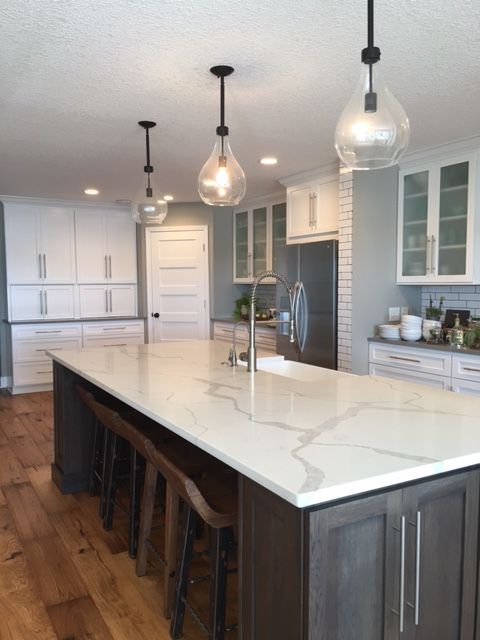
Sustainability is another important consideration for many homeowners. Some quartz manufacturers now offer eco-friendly options, using recycled materials and sustainable manufacturing practices. These environmentally conscious choices not only reduce the impact on the planet but also appeal to homeowners who are looking to make greener decisions in their home improvement projects. Choosing eco-friendly quartz countertops can enhance the sustainability of the kitchen while still delivering on style and performance.
The durability of quartz countertops extends to their resistance to heat and impact. While it is always advisable to use trivets and cutting boards to protect any countertop surface, quartz can withstand higher temperatures and more wear and tear than many other materials. This makes quartz ideal for active kitchens where cooking and food preparation are frequent activities. The robust nature of quartz ensures that it will maintain its beauty and functionality for many years, making it a worthwhile investment.
Another design idea is to use quartz countertops in combination with other materials. For example, pairing a quartz island with wooden or stainless steel countertops can create an interesting contrast and add texture to the kitchen design. This mixed-material approach allows for creativity and can make the kitchen more dynamic and visually engaging. Additionally, incorporating different materials can help delineate different functional areas within the kitchen, such as a dedicated baking station or a bar area.
Lighting also plays a crucial role in showcasing the beauty of quartz countertops. Under-cabinet lighting can highlight the intricate patterns and colors of the quartz, adding depth and dimension to the kitchen. Pendant lights over an island or countertop can create a focal point and enhance the overall ambiance of the space. Proper lighting can make the quartz countertops the star of the kitchen, showcasing their unique characteristics and making the space more inviting.
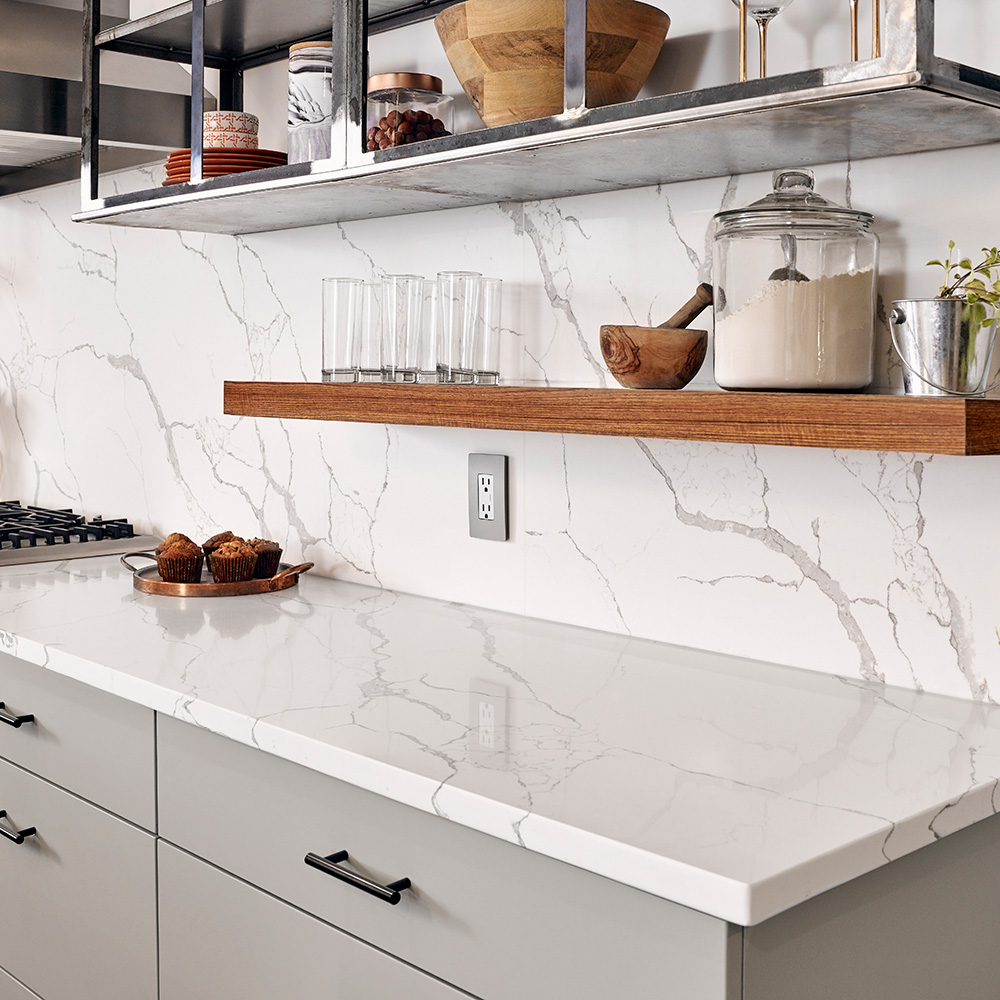
For those looking to incorporate a touch of luxury into their kitchens, quartz countertops with metallic flecks or finishes can be an excellent choice. These countertops can add a subtle shimmer and sophistication, elevating the kitchen’s design. Metallic accents work well in both modern and traditional kitchens, adding a hint of glamour without overwhelming the space. When combined with complementary hardware and fixtures, metallic quartz countertops can create a cohesive and elegant look.
Incorporating patterns and textures in quartz countertops is another way to add interest to the kitchen. Matte finishes, for example, can provide a softer, more subdued look compared to the high gloss of polished quartz. Textured surfaces can also add a tactile element, making the kitchen feel more inviting and engaging. These options allow homeowners to tailor their countertops to their personal style and the overall design of their kitchen.
Finally, the customization options with quartz countertops are nearly endless. From choosing the exact color and pattern to selecting the perfect edge profile and finish, homeowners can create a countertop that truly reflects their style and needs. Working with a knowledgeable fabricator can help ensure that all these elements come together seamlessly, resulting in a stunning and functional kitchen centerpiece.
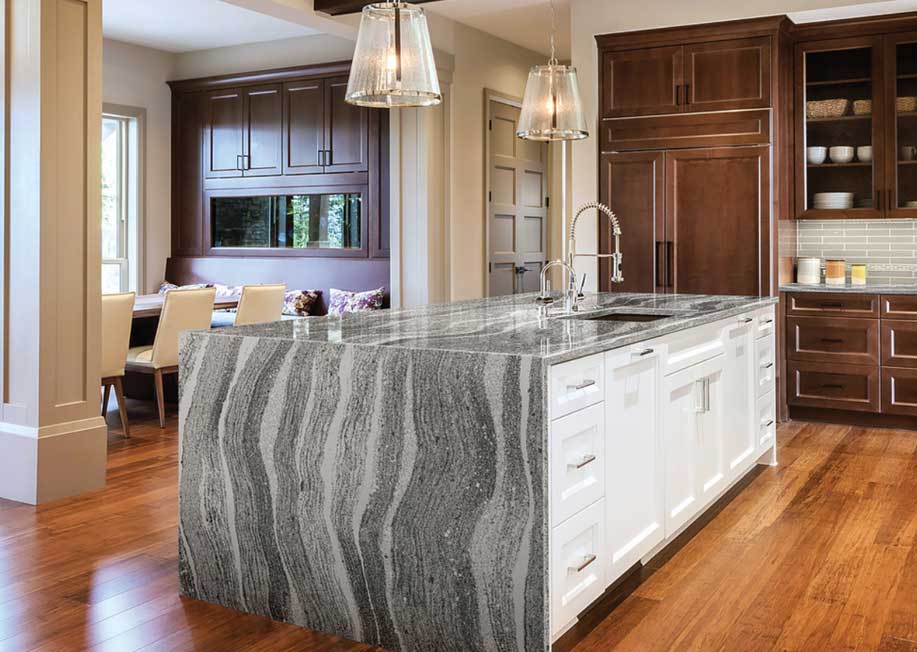
Common Mistakes to Avoid
When choosing quartz countertops, it’s important to avoid some common mistakes to ensure you get the most out of your investment. One mistake is not considering the overall kitchen design and how the countertop will fit within it. It’s crucial to think about the color scheme, cabinetry, flooring, and other elements to ensure the quartz countertop complements the entire space. Another mistake is neglecting to view full slabs before making a decision. Small samples might not accurately represent the overall look of the countertop once installed, so viewing larger sections or full slabs can provide a better idea of the final appearance.
Improper installation is another frequent pitfall. Ensuring that you hire experienced professionals to install your quartz countertops is essential, as poor installation can lead to issues like uneven surfaces and improper seams. Additionally, failing to understand the care and maintenance requirements, even though quartz is low maintenance, can lead to problems. It’s important to follow manufacturer guidelines for cleaning and avoid using harsh chemicals or abrasive materials that could damage the surface.
Lastly, overlooking the importance of edge profiles can affect both the aesthetics and functionality of your countertops. Edge profiles are not just about appearance; they can also influence the durability and safety of the countertops. Taking the time to explore different edge options and considering how they will work with the rest of your kitchen design is important.
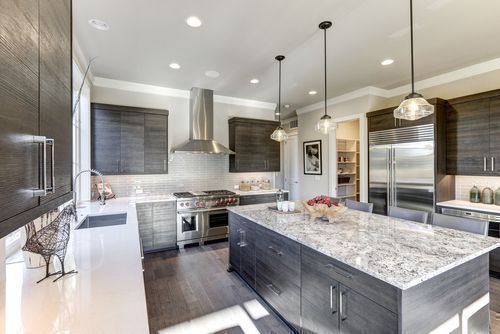
Are quartz countertops more expensive than granite?
Quartz countertops generally fall into the same price range as granite, but costs can vary based on factors such as color, pattern, and edge profile. While some quartz options might be more affordable, high-end quartz countertops with unique patterns or custom finishes can be more expensive. The overall cost also includes installation, which can vary depending on the complexity of the job. It’s important to compare quotes and consider the long-term benefits, such as durability and low maintenance when making your decision.
How do I clean and maintain quartz countertops?
Cleaning quartz countertops is simple and requires only mild soap and water. It’s best to use a soft cloth or sponge to avoid scratching the surface. For tougher stains, a non-abrasive cleaner can be used, but it’s important to avoid harsh chemicals or bleach that could damage the resin in the quartz. Regular cleaning is usually sufficient to keep quartz countertops looking new, and unlike natural stone, quartz does not require periodic sealing.
Can quartz countertops be repaired if they get damaged?
While quartz is highly durable and resistant to many types of damage, it can still chip or crack under extreme conditions. Minor chips and scratches can sometimes be repaired using epoxy or resin fillers, but significant damage might require professional repair or even replacement of the affected section. It’s always best to consult with a professional if your quartz countertop sustains damage to determine the best course of action.
Are quartz countertops environmentally friendly?
Many quartz manufacturers are committed to sustainable practices, using recycled materials and environmentally friendly manufacturing processes. When choosing quartz countertops, look for certifications such as GREENGUARD or LEED to ensure that the product meets certain environmental standards. Additionally, because quartz countertops are long-lasting, they contribute to sustainability by reducing the need for replacement and minimizing waste.
Can quartz countertops withstand high heat?
Quartz countertops are more heat-resistant than many other countertop materials, but they are not completely impervious to heat damage. It’s advisable to use trivets or hot pads when placing hot pots and pans on the countertop to prevent any potential damage. Sudden temperature changes can cause thermal shock, leading to cracks or discoloration. By taking simple precautions, you can protect your quartz countertops and maintain their beauty for years to come.
Design Ideas for Quartz Countertops Design Ideas for Quartz
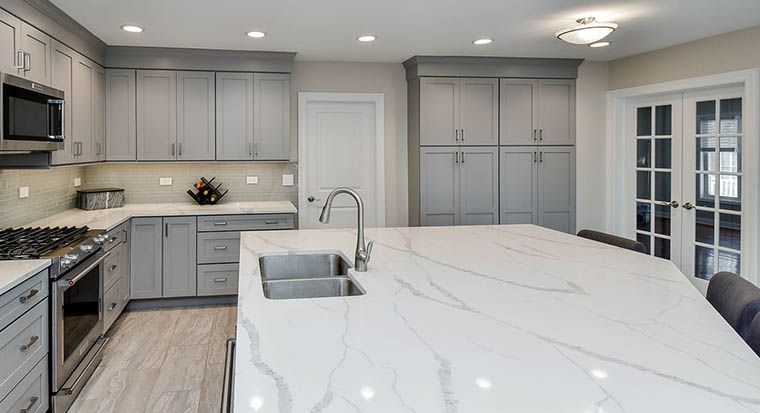
Quartz Kitchen Countertops for an Elegant Kitchen
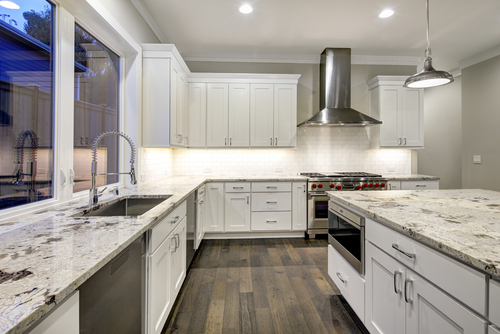
Quartz Kitchen Countertops Ideas With Pros And Cons
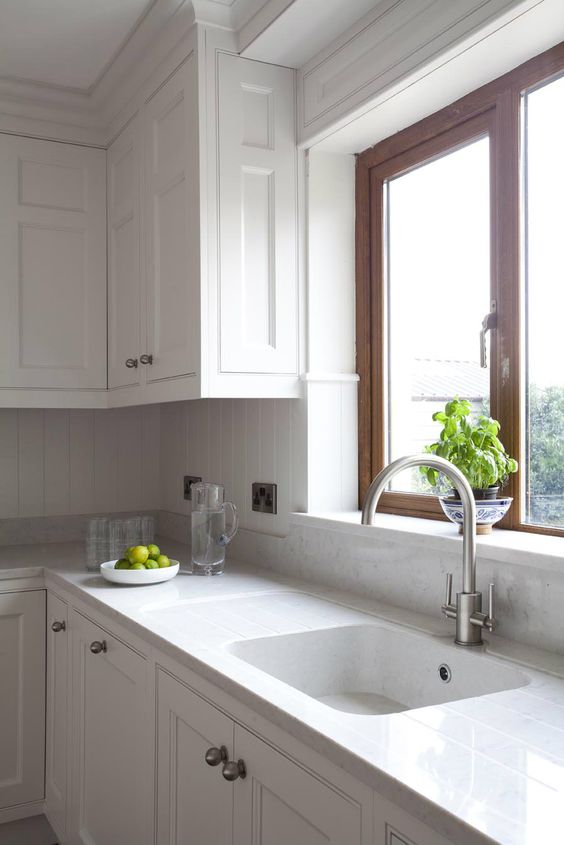
Many Looks and Benefits of Quartz countertops MSI Blog
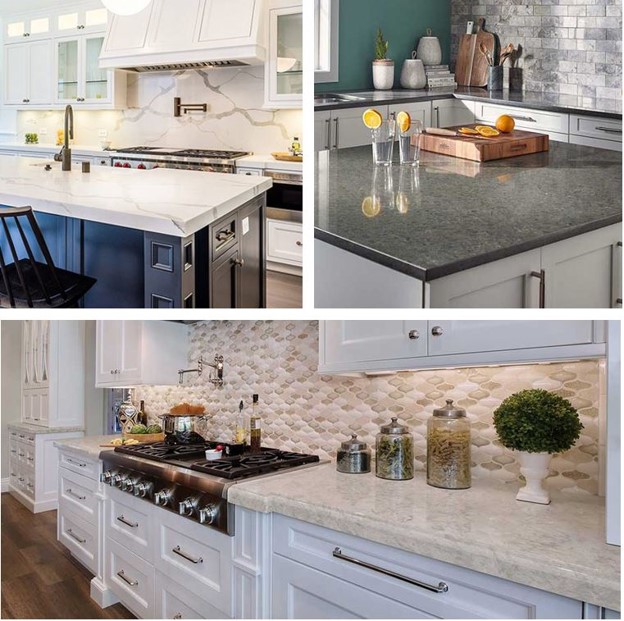
Best Quartz Countertop Ideas: Quartz Countertops
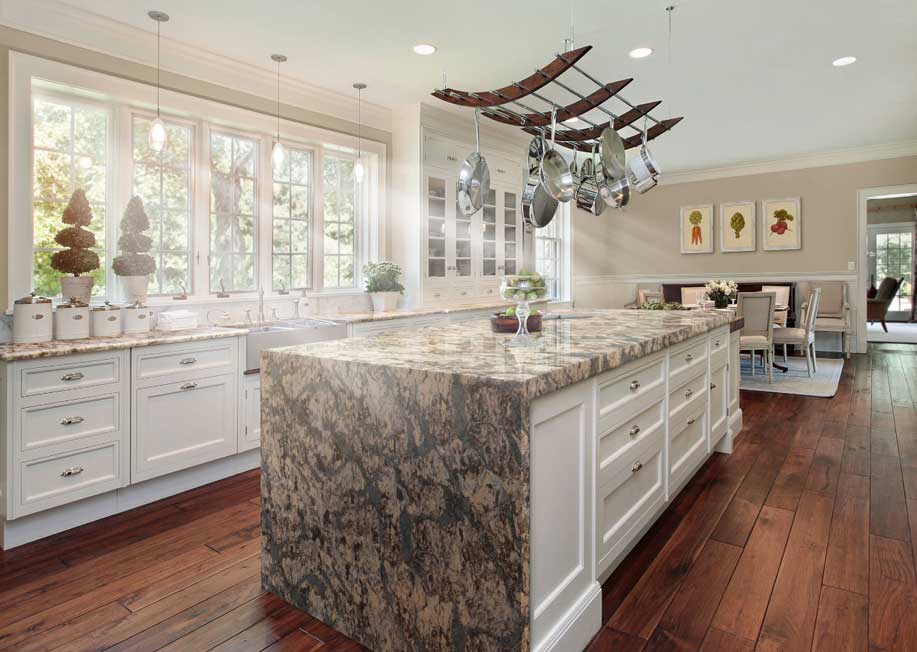
Related articles: